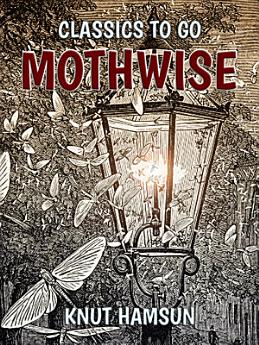Mothwise
leden 2020 · Otbebookpublishing
E‑kniha
96
Stránky
family_home
Vhodná
info
reportHodnocení a recenze nejsou ověřeny Další informace
Podrobnosti o e‑knize
Excerpt: "Marie van Loos, housekeeper at the Vicarage, stands by the kitchen window looking out far up the road. She knows the couple there by the fence—knows them indeed, seeing 'tis no other than Telegraph-Rolandsen, her own betrothed, and Olga the parish clerk's daughter. It is the second time she has seen those two together this spring—now what does it mean? Save that Jomfru van Loos had a host of things to do just now, she would have gone straight up to them that moment and demanded an explanation. As it was, how could she? There was no time for anything now, with the whole place upside down, and the new priest and his[2] lady expected any minute. Young Ferdinand is already posted at an upstairs window to keep a look-out to seaward, and give warning as soon as the boat is in sight, so that the coffee can be ready the moment the travellers arrive. And they would need it, after coming all the way from Rosengaard, four miles off. Rosengaard is the nearest place at which the steamer calls, and from there they come on by boat."
O autorovi
Knut Hamsun, born Knud Pedersen in 1859 in rural Norway, is a towering figure in modernist literature, renowned for his innovative narrative techniques and psychological depth. Hamsun's early life was marked by hardship and wanderlust, experiences that profoundly shaped his literary voice. He spent years in America, working various odd jobs, which provided rich material for his later works.Hamsun's breakthrough came with "Hunger" (1890), a novel that delves into the psyche of a starving writer, showcasing his pioneering use of stream-of-consciousness and interior monologue. This novel, along with "Mysteries" (1892) and "Pan" (1894), established him as a master of psychological realism and a precursor to later existentialist writers.Hamsun's influence extended to luminaries such as Franz Kafka, Ernest Hemingway, and Thomas Mann, who admired his ability to capture the complexities of the human condition. His works often explore themes of nature, isolation, and the individual's struggle against societal norms, resonating with contemporary readers who grapple with similar issues.However, Hamsun's legacy is marred by his controversial political views. During World War II, he expressed support for Nazi Germany, a stance that led to his post-war arrest and trial for treason. This aspect of his life continues to spark debate, challenging readers to reconcile his literary genius with his flawed human character.Despite the controversies, Hamsun's contributions to literature are undeniable. His revolutionary ideas about narrative structure and character psychology paved the way for modernist and postmodernist writers, ensuring his place in the pantheon of literary greats.
Ohodnotit e‑knihu
Sdělte nám, co si myslíte.
Informace o čtení
Telefony a tablety
Nainstalujte si aplikaci Knihy Google Play pro Android a iPad/iPhone. Aplikace se automaticky synchronizuje s vaším účtem a umožní vám číst v režimu online nebo offline, ať jste kdekoliv.
Notebooky a počítače
Audioknihy zakoupené na Google Play můžete poslouchat pomocí webového prohlížeče v počítači.
Čtečky a další zařízení
Pokud chcete číst knihy ve čtečkách elektronických knih, jako např. Kobo, je třeba soubor stáhnout a přenést do zařízení. Při přenášení souborů do podporovaných čteček elektronických knih postupujte podle podrobných pokynů v centru nápovědy.








